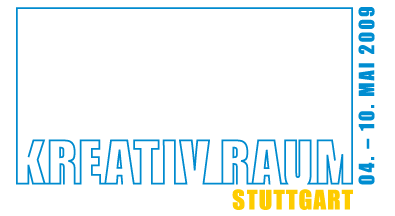Ein kleiner Rückblick auf meine Veranstaltungen der letzten Woche (Teil 1 jetzt, Teil 2 folgt sogleich), angefangen mit der DNUG Konferenz in Düsseldorf. Das Motto war “The Innovation Enterprise: Generating Value in a Smarter World”, ich habe eine Reihe der Keynotes, Workshops und Diskussionsrunden wie geplant besucht und im Rahmen der Veranstaltung viele gute Gespräche geführt. Klar, es ging mir vorrangig um Enterprise 2.0, insbesondere die damit zusammenhängenden Implementierungs- und Change Management Aufgaben. Besonders interessant war hier der “trilaterale Austausch” – Praktiker, Berater und Wissenschaftler (u.a. Philip Räth von der EBS, Stefan Taing von der LMU oder auch Prof. Koch von der Forschungsgruppe Kooperationssysteme) gehen das Thema doch sehr unterschiedlich an. Das ist natürlich verständlich, meine Beobachtung ist aber schon dass es die Berater als Bindeglied zwischen “(manchmal) visionärer Innovationsbegeisterung & datenlastiger Analysefokussierung” und “(manchmal) Fokussierung auf ganz eigene unternehmensspezifische Probleme und Herausforderungen” braucht … umso schöner dass IBM bzw. die DNUG ein “Ticket gegen Vortrag”-Programm für Studenten anbot, und so die Mischung der Teilnehmer heterogen und damit interessant gestaltete.
Alle drei Gruppen konnten zudem von den Keynotes profitieren, einfach deshalb weil in diesen (bspw. von Bob Picciano oder auch von Martin Jetter, dem Deutschland Chef der IBM) die wichtigen Themen und Agendas gesetzt werden, Einschätzungen zum Markt deutlich werden und man auch sehr schön “zwischen den Zeilen lesen kann”. Gerade Bob hat sich sehr optimistisch zum Standing von IBM bzw. Lotus im Bereich Collaboration gezeigt, das Business ist “Growing, Innovating, Expanding, doing Alliances“. Er zog hier Parallelen zum größeren IBM Thema “Smarter Planet”, und dem speziellen Teil “Smarter Work” für das die integrierte Social Software Lösung Lotus gut aufgestellt ist. Interessant darin die “Nine Predictions for Collaboration in 2009″.
- Universal Access to Collaboration (as application, as service, in the application)
- Messaging Becomes an Integrated Platform
- Managing Through Human Networks (ja, es ist people business, wir suchen die richtige Person mit der passenden Expertise, wir schaffen ad-hoc Communities, … )
- Telephony Becomes Voice Collaboration (ja, auch wenn Telefonie auch ganz schön viel Zeit “stehlen” kann)
- Innovative Desktop Productivity Tools – Lotus Symphony läuft auch auf Ubuntu (siehe auch Trend No. 7 …)
- Transform SMB into Global Trading Partners (das ist bestechend, sehe ich 100% genauso, ein unterschätzter Usecase gerade für kleine und mittlere Unternehmen)
- Linux emerges onto the Corporate Desktop (klar, Kosten sind aber nur ein Aspekt, hassle-free usability das andere)
- (Continued) Poliferation of Cloud Computing, wie bspw. Lotus Live
- Situational Apps Solve Daily Problems – Mashups
Diese Trends flankieren natürlich den Smarter Work-Business Case für Social Software aus Sicht von IBM:
- Connect globally with employees, customers and partners to build strong relationships that drive results, sense and respond
to change - Collaborate from anywhere to become a more agile, adaptable organization
- Innovate to leverage the power of participation and generate new ideas, develop efficient means of working and harness collective talent
- Optimize the cost of enabling people (and find ways to leverage and preserve organizational tacit knowledge)
Hmm, noch eines zum Sinn und Zweck von solchen Konferenzen (das oben erwähnte “zwischen den Zeilen lesen” kann man ja auch nachträglich, bspw. bei Twitter, man suche bspw. nach DNUG). Es geht darum Leute zu treffen, gemeinsam Spaß zu haben und von- und miteinander zu lernen, die DNUG hat all das erfüllt. Markus hat das hier sehr schön auf den Punkt gebracht:
PS. Weitere Videos auch im IBM Lotus Deutschland Youtube-Channel, via BlueBlog
 Tomorrow and the day after I will be in Düsseldorf for the 2009 DNUG (german Notes user association) conference – this time the topic is „The Innovative Enterprise – Generating Value in a Smarter World“ (yes, we’re
Tomorrow and the day after I will be in Düsseldorf for the 2009 DNUG (german Notes user association) conference – this time the topic is „The Innovative Enterprise – Generating Value in a Smarter World“ (yes, we’re 
